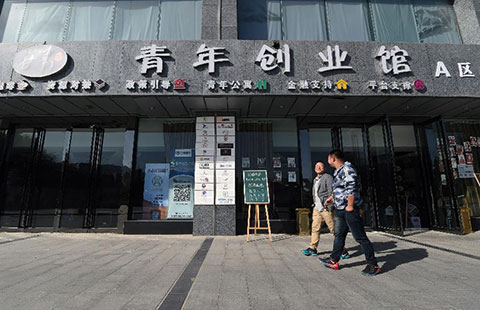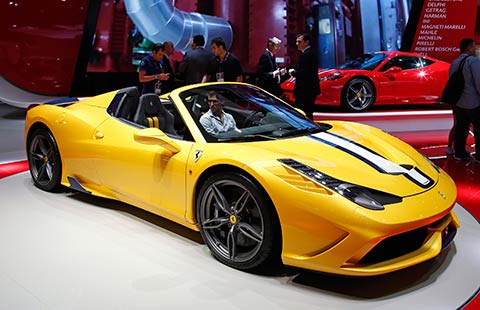China's push to add renminbi to SDR basket nearing finish line
(Xinhua) Updated: 2015-10-13 16:14LIMA - Thanks to its push to internationalize the renminbi, China in recent years has seen places as far away as Santiago, Luxembourg, Ottawa and Kuala Lumpur become centers for trade involving the Chinese currency.
However, the Chinese government is now seeking for a more meaningful prize: the inclusion of the renminbi to the Special Drawing Rights (SDRs), the IMF's international reserve asset used to back up member countries' official reserves.
The SDRs can not be used to directly purchase goods or services. However, they can be exchanged between IMF member countries for hard currency among the US dollar, the pound, the euro and the yen in the basket.
Therefore, adding the renminbi to this elite list would not only raise its status, but also allow countries to cash in their SDRs for the Chinese currency, easing their trade in China and giving them another option for how to hold their foreign reserves.
The IMF is currently engaged in a review of the SDR basket to analyze if any changes should be made to its makeup.
The first step of this review ended on Aug. 11, when the IMF Executive Board voted to extend the current makeup of the SDR until Sept 30, 2016. The IMF said this was done to satisfy SDR users that were against short-term changes in order to ensure that current operations would continue to run properly.
However, it may well be likely that this was done in order to allow time for central banks to prepare for the renminbi to be added to the SDR starting next September.
IMF Managing Director Christine Lagarde said earlier this month "the IMF will complete a technical assessment (on the renminbi) before the end of 2015. This is nearly completed and recommendations are being finalized. The review will determine implementation from September 2016 to allow time for central banks to adjust."
Speaking to the IMF Survey magazine in August, Siddharth Tiwari, the IMF's Director of Strategy, Policy and Review, said, "the renminbi is the only currency not currently in the SDR basket that meets the export criterion. Therefore, a key focus of the current review will be whether the renminbi also meets the freely usable criterion in order to be included."
"The review is well underway. Staff continues its technical work, including on addressing data gaps and operational issues, while liaising closely with Chinese authorities...ahead of the formal Board meeting expected later in 2015," said Tiwari.
The depreciation of the renminbi had some analysts concerned, but the IMF has defended the move, saying it brought China's exchange rate in line with market rates.
- Yuan rises for 7th day in a row, at highest level since August
- IMF confident of China's economy
- 'Milestone' renminbi cross-border interbank payment system launched
- China jumps to fourth most-used world payment currency, overtakes yen: SWIFT
- Interview: Next 5 years crucial for China, says Ernst & Young
- Sept export fall less than expected, imports slump
- Nordic startups to benefit from Sino-Finnish fund
- Cheap medicines disappear from market
- Shanghai's wealthy pay 15% of Chinese life insurance premiums
- REALdeal for Alibaba Pictures Group
- Chinese business leaders to visit Germany and Italy
- OnePlus announces plans to make in India
- German testing service provider supports China's quality upgrades
















